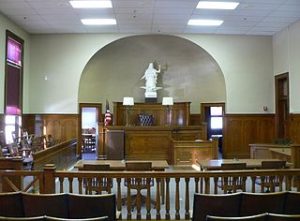“For in him all the fullness of God was pleased to dwell, and through him to reconcile to himself all things, whether on earth or in heaven, making peace by the blood of his cross” (Colossians 1:19-20 ESV).
The appearance of the word “reconcile” here in Colossians 1:19 implies the existence of a prior conflict between the Creator and His creation. The origin of that conflict is revealed in the New Testament book of Romans where we’re told, “…sin entered the world through one man and death through sin…”
The “one man” mentioned in that passage refers to Adam, the very first human being. Genesis chapter three contains the account of Adam’s sin and the resulting effect that continues to this day. When Adam made the conscious decision to disobey God, he severed the relationship he previously enjoyed with his Creator. The ultimate result of that act was death. This was not an immediate, physical death (although that took place later) but spiritual death or separation from God.
However, God graciously ended this conflict at the cross of Christ. As we’re told here in Colossians 1:20, God reconciled all things to Himself through Jesus’ sacrificial offering by making peace through the blood of His cross. But why would such a sacrifice be necessary? Well, we can look to the example of a modern-day judicial system for an answer.
You see, God is unlimited in His perfection. Because of this, He cannot simply “look the other way” whenever His law is broken. Unfortunately, the penalty for breaking God’s law is death. In fact, God warned Adam that he would be subject to this death penalty if he ever broke the solitary law He had established in the Garden of Eden (see Genesis 2:16-17).
 In a contemporary courtroom, an honorable judge is responsible to uphold the law and sentence those who are guilty of breaking it. If a good judge allowed lawbreakers to go unpunished, then he or she would no longer be a good judge. Instead, the judge would also be guilty of criminal behavior and subject to punishment as well. This is why God cannot simply overlook a violation of the law. In keeping with His just and righteous character, God is a morally perfect arbiter. As such, He must punish those who break the law.
In a contemporary courtroom, an honorable judge is responsible to uphold the law and sentence those who are guilty of breaking it. If a good judge allowed lawbreakers to go unpunished, then he or she would no longer be a good judge. Instead, the judge would also be guilty of criminal behavior and subject to punishment as well. This is why God cannot simply overlook a violation of the law. In keeping with His just and righteous character, God is a morally perfect arbiter. As such, He must punish those who break the law.
So a sentence must be imposed upon those who are guilty of breaking God’s law. But thankfully for us, God was pleased “…to reconcile to himself all things… by making peace through (Jesus’) blood, shed on the cross” (NIV).

